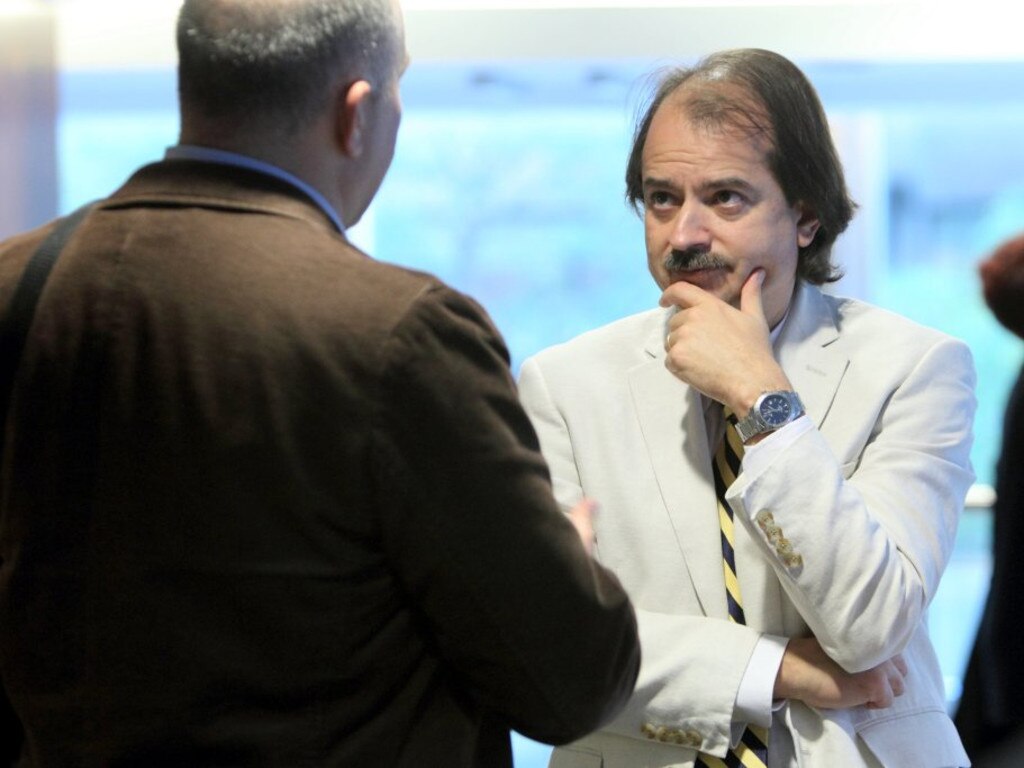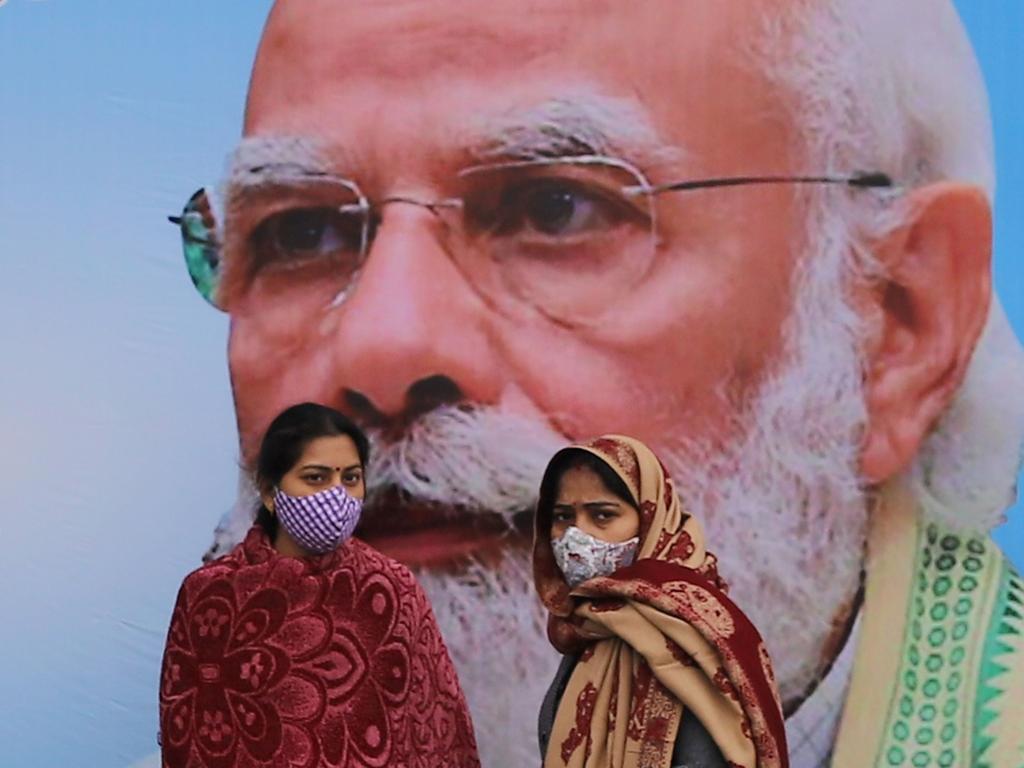Disaster awaits if we don’t learn the lessons of COVID
The danger is not so much another pandemic as the risk of Cold War II, says outspoken British historian Niall Ferguson.

It is not encouraging for humanity that when we have been overwhelmed by disasters on a calamitous scale — pandemics, famines, plagues, world wars, earthquakes, floods, hurricanes, tsunamis, volcanoes — we routinely fail to learn how to prevent them from happening in the future or better manage them when they do befall us.
“It’s partly that we just don’t study in the right way,” historian Niall Ferguson explains in an interview with Inquirer. “Increasingly, history is taught as some kind of progressive morality tale, in which wicked ideas such as racism and sexism are slowly overcome. This is of very limited value, as it involves judging the past by anachronistic yardsticks”
“It also misses out the reality that much of what we call history is the story of our species struggling against multiple forms of disaster and slowly and painfully learning how to cope with them.
“Disasters are hard to prevent because they are impossible to predict. But we can do better at managing them. Very few countries handled COVID-19 well, but a few did. The key is not to have prophetic foresight, but to have a rapid response when a disaster begins.”
This rather dismal and depressing story of disasters is the subject of Ferguson’s latest sweeping book of world history: Doom: The Politics of Catastrophe (Allen Lane). Ferguson, the renowned author of Empire (2003), Colossus (2004), The Ascent of Money (2008) and Civilisation (2011), gives readers a tour of devastation, misfortune and tragedy in human history.
The multidisciplinary analysis classifies a “grey rhino” disaster as predictable, a “black swan” disaster as surprising and a “dragon king” as an extreme disaster with vast ramifications.
“This plague began as a grey rhino, predicted by many,” Ferguson writes of COVID-19. “It struck as a black swan, somehow completely unforeseen. Could it become a dragon king?”
Ferguson’s “menagerie of catastrophe” is littered with fascinating excursions into events such as the sinking of the Titanic, the nuclear explosion at Chernobyl and the eruption of Mount Vesuvius which engulfed Pompeii and Herculaneum, often challenging the accepted wisdom of what happened and why, and to illustrate the interaction between preventable disasters and human blunders that only make the impact worse.
Ultimately, Ferguson rather depressingly concludes the Four Horsemen of the Apocalypse — Conquest, War, Famine and Death — gallop out at us when we least expect it and “remind us that no amount of technological innovation can make mankind invulnerable”. So, what do many of us do? We turn to a dystopian Margaret Atwood novel or re-watch the movie Contagion.
While COVID-19 has had a devastating health, social and economic impact, and is far from over, Ferguson argues that it is not worse than the Black Death which ravaged Europe in the 14th century or the Spanish Influenza a century ago. Indeed, he compares COVID-19 to the largely forgotten so-called Asian Flu of 1957-58. Accordingly, he judges the punitive response of many governments to have been unnecessary.
“COVID is closer to the Asian Flu than to those earlier, much worse pandemics, but it’s clearly going to end up worse in terms of the proportion of the world’s population it kills,” he says. “Even if we had known in January 2020 that it was going to be the Asian Flu, not the Spanish Flu, we should have done much better.
“The wasted weeks in January, February and early March really rankled with me because it was obviously going to cost many, many lives. Then in mid-March governments in Europe and North America swung from complacency to panic with very drastic lockdown measures, some of which were pointless and even harmful (like the closure of parks and beaches in California) and the protracted closure of schools.”
So how did so many governments around the world, including Australia, initially bungle the response to COVID-19? Many underestimated the severity of the coronavirus, delayed acting decisively, then panicked, and inflicted sometimes drastic actions to reduce the spread. While Ferguson does not let leaders off the hook, including Donald Trump, he sees widespread bureaucratic failures as the main culprit.
“The point of failure was not really at the top, tempting though it was to blame Trump, Johnson, Bolsonaro and Modi,” Ferguson argues. “Plenty of liberal presidents and prime ministers presided over equally bad excess mortality. The key was that the public health bureaucracies had pandemic preparedness plans that didn’t work — just like all the regulations governing banks and mortgages didn’t work in 2008.
“We have to look at the way the Taiwanese use technology to empower citizens and increase the transparency of government. Above all, we need our bureaucracy to learn to be much quicker on their feet. This was their Vietnam, and they need to reinvent their way of doing things as the US Army did after the disaster of that war.”
The rapid spread of COVID-19 has been a function of globalisation. Few other nations had the benefit of being an island able to pull up the drawbridge and strictly control borders. Ferguson argues the spread of diseases has a lot to do with changing social networks. This was the subject of his previous book, The Square and the Tower (2017), which I interviewed him about three years ago.
“The pandemic has revealed how right that book was: a networked world is a highly fragile world, vulnerable to all kinds of contagion, both biological and psychological,” he says. “Our networks of transportation and telecommunication are massive engines for transmitting all kinds of viruses and memes. We haven’t even begun to think about how to address this problem.
“There clearly need to be very fast circuit-breaking rules to close down flights from infected areas when a new disease is detected. Just as importantly, we need to revisit the way the internet is (not) regulated, because the power of the network platforms (ie, big tech) has now become far too great. As for the old hierarchies of the public sectors — especially the civil services — these desperately need to be taught some network science.”
Having catalogued and analysed catastrophes throughout history, and having grappled with where COVID-19 fits into this broader story, Ferguson is not so optimistic that we have learnt the right lessons this time about how to anticipate and respond to the next crippling pandemic.
“I hope that those European and American countries that really screwed up can now look at the successful countries — led by Taiwan and South Korea — and learn from them the importance of rapid and large-scale testing, contact tracing and effective quarantines,” he says. “They learned the lessons of SARS and MERS; we didn’t. But will we do better if the next pandemic is quite different from COVID? I suspect not. We remain addicted to very bureaucratic approaches to disaster preparedness.”
With every catastrophe, there are unintended consequences that may not initially be clear and seem totally unrelated. Ferguson writes that pandemics, like financial crises and wars, “are history’s great interruptions”, with the aftershocks shaping how we live for a long time following them.
“Disasters can cause cascades: the pandemic leads to the lockdowns; the lockdowns lead to massive deficit spending and money creation; these, in turn, lead to inflation,” he says. “Then there’s the cascade from the pandemic to Cold War II, the worsening of China’s relations with the West. And I would also add the unintended consequences for our ongoing generational conflicts. The old were protected (somewhat) at great cost to the young.”
Ferguson argues that what we should be most worried about is global conflict, perhaps between the US and China, rather than the next pandemic or climate change. The health, social, economic and environmental toll, and likely deaths, from a Hot War could be a disaster “far greater” in impact than COVID-19.
How the West won Cold War I is worth remembering. Ferguson has written the first volume of a biography of Henry Kissinger. His strategy of detente — dialogue through diplomacy — during the Nixon-Ford presidency helped ease tensions. But is it relevant with a more assertive China? “It is highly relevant,” insists Ferguson. “In Cold War II we need to get detente ASAP, without the brinkmanship of the 1950s and 1960s. But let us not forget detente ended up losing its domestic political base. Reagan came to power partly by attacking detente and ramping up Cold War I. That strategy worked, but there is no guarantee it will work again.”







To join the conversation, please log in. Don't have an account? Register
Join the conversation, you are commenting as Logout